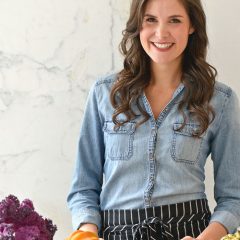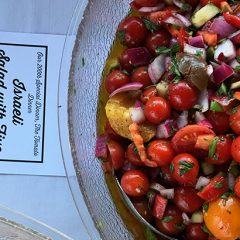
Meet the Vegetable Butcher: Ari’s Interview with Cara Mangini
Cara Mangini will be our honored guest at the Roadhouse’s Tomato Dinner #214 on September 12th! We will be tasting delicious recipes from her new book, “The Vegetable Butcher”, and watching a live demo of her butchering vegetables! Don’t miss out. Grab a seat today! In the meantime, sink your teeth into Ari’s recent interview […]
Read more »

Zingerman’s Art for Sale